- From Faith Current: “The Sacred Ordinary: St. Peter’s Church Hall” - May 1, 2023
- A brief (?) hiatus - April 22, 2023
- Something Happened - March 6, 2023
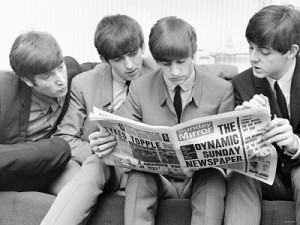
“Apparently, we’re not a patch on The Shadows.”
Something’s been sticking in my craw for some time, and I will take this occasion to extract it. A while past on this blog, I posted a video of myself and a friend debating the best Beatles album. I picked the White Album, which if not quite the commonest opt is at least a safe one among Beatle people, while my friend picked Beatles for Sale—which no one else in history has chosen as their best. A comment was dropped by a reader whose powers of perception were such that he had merely to see the title of my friend’s pick for him to know the appended argument and encompassing video were unworthy of his attention…[snip]…But full exposure to the argument would have revealed that his points were considered, coherent, and, though highly subjective and dependent on personal experience, no more so than your choice of Pepper or mine of White. But our commenter, happy to turn off his mind, relax and float back to the womb of his own protected opinions, will never know that, as he will probably not know a few other things in life.
The point is to take the differing opinion, even the radically differing one, on the terms on which you’d like your own to be taken, and not respond to that difference by calling critics “eunuchs at the gang-bang.” (I don’t know any more than does Hologram Sam who originally said that, but I’d bet my car it was a rock star who just got, and probably deserved, a bad review.) [A quick search attributes it to George Burns or Mike Nichols.—MG] The point is to truly consider alternate views, not disallow them via insinuations of insanity or allegations of asexuality. It’s not just good manners, it’s fair play: remove those layers of engagement, openness, and dispassionate assessment, and we are all Comic Book Guy.”
Both Sides Now
I think what made Devin’s statements (and pique) so interesting to me is, unlike most comedy folk, I’ve been both a performer and a critic. As most of you know, I’ve written some widely praised, and widely damned, funny books. I’ve received plenty of undeserved criticism, and as much undeserved praise, but here’s the thing: I can’t recall one critical opinion that addressed, or even seemed to grasp, the main point of any of my books. For all the ink and pixels we spill on post-grad pop culture commentary—and it’s endless—my own test cases showed that critics bring a fairly low level of analytical rigor to their work. (Or my stuff sucks. I’m willing to admit that possibility, too.)
But ten years before I was getting reviewed, I was reviewing. (Still do it occasionally…awkwardly, but sincerely.) Back when Amazon.com was just toddling out of Jeff Bezos’ garage or wherever it began, I was that outfit’s Humor Editor. Which meant that I flung my opinions far and wide across the dialup-powered internet, for some pay and even less glory. So here’s where I tell you I did better than the people who reviewed my books? Nope—I was a wan, thin, schoolmarmish critic, and wish I’d never written a word of it. Not because I didn’t take it seriously (I was quite scholarly, which drove my editor nuts) or express valid opinions—if one new person read Without Feathers or Fran Leibowitz or Will Cuppy as the result of my reviews, I consider it all worth it. My style was even OK, if a little sweaty. But here’s the thing: I wasn’t a critic. I was, and always have been, a writer. So there was something dishonest taking place—necessary given my finances, but distinctly unfair, and I think readers picked up on that.
When a book came across my desk, I wouldn’t—couldn’t—judge it on its own merits. It was simply impossible to hear over the din of my own voice. So I did the only thing I could do: hold it up to my mind’s bright light, seeing how closely its outlines fit with my own aesthetic. From both my knowledge of how the business works, and what I now read under the rubric of “criticism” I’m convinced that’s what 99% of critics do today, and it’s utterly useless. It’s what Nik Cohn was doing in his review of Abbey Road.
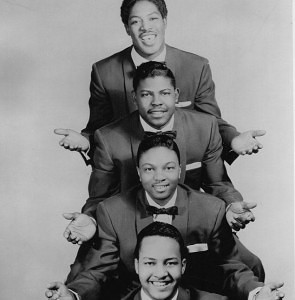
“Hey, don’t drag US into this.”
Because I cannot name a single time a record review has enhanced my enjoyment of a record, I avoid rock criticism; thus I did not know who Nik Cohn was, except perhaps in a vague, murmur-of-existence way. Now, after reading his review, I know exactly who he is: somebody so overconfident in his artistic judgment, so enthralled by his own narrow aesthetic, so high on his own supply that he panned the 14th greatest LP ever recorded, because it didn’t sound like The Penguins. So I forever revoke Nik Cohn’s authority on The Beatles. You want to take him seriously, fine. I won’t; he’s simply not accurate, much less trustworthy. Just as I revoke the authority of that guy on Pitchfork who suggests—via Kurt Cobain who isn’t here to rebut his 25-year-old self—that The Beatles peaked in 1964. Now, was that Pitchfork review any worse than what I wrote, ‘way back when? Certainly not—a lot better, in fact (there’s only so much I could say in 200 words). But especially with a topic as overexposed as The Beatles, personal passion is an essential starting point. (Here’s an example of a Beatles piece that works, IMHO. Revelatory? No—but passionate and accurate.)
Everybody’s Entitled to An Opinion
In this internet age, everybody’s damn sure going to express one—and so I think there are problems with Devin’s compassionate plea for civility. If there’s anything that’s going to kill what used to be called “Western culture,” the idea that everybody’s opinion is equally worth considering is a leading candidate; it’s not that future generations won’t care about great art, it’s that they’ll be too dimwitted and narcissistic to tell the difference. You can see this stupidity in action in the oh-so-internet idea that “The Beatles were just an overhyped boy-band, unlike [insert current band here].” (Go to Slate, click on an article about the Beatles, and scroll through the comments. Then cry.) Every alternate view isn’t worth considering; in fact, most aren’t. With editing more and more a lost art, some common-sense reader-side filters are required.
Is the critic accurate? Within reason, obviously. Not everyone is Lewisohn. (I’m certainly not.)
Is the critic sincere? Either this stuff matters, or it doesn’t; expressing a strong opinion should put you in the former camp, and that comes with certain obligations. Unlike that commenter, I listened to all of that video Devin mentioned, and I was disappointed. I wanted the other guy to really debate Devin, really fight for Beatles For Sale—or at least bring Devin’s level of erudition and thought to the gig. I don’t know if that person exists, but if you’re not into The Beatles—if you think they’re overhyped, or at least overexposed and there are plenty of other bands we could be and should be talking about instead—then “Best Beatles LP” is not the talk for you to give. It’s as if I had been asked to speak at a comedy convention on “The Greatest Standup of All Time,” and bracketed my co-presenter’s discussion of Richard Pryor with a stunt-choice of Andrew “Dice” Clay. Then spent 20 minutes tracing interesting curlicues.
Is the criticism essential? It’s not just cultural omnipresence that makes The Beatles so difficult to critique; it’s also the power and clarity of their work. With a few exceptions, critics of The Beatles are simply beside the point; the music is enough. Which, of course, is what makes Devin’s own book Magic Circles that much more amazing. It has shaped my thinking about this group—but the techniques Devin had to use to generate genuinely new insights, the intellectual force it required from him to beat through that image we all know, these things are what makes the book too rich a flavor for some. So rich, in fact, that I don’t consider it criticism, but a kind of parallax view.
Is the criticism helpful to the art? My final point is clearly unfair, but it’s perhaps the most interesting to consider. One could argue that the vast murky ocean of pop cultural critique that currently laps at our chins began with the bombastic praise for Sgt. Pepper in 1967, and the establishment of Rolling Stone later that year. That development was obviously great for certain things—the counterculture’s perception of itself, Jann Wenner’s bank account, the media business in general—but maybe not for the music it covered. Certainly if one looks at The Beatles, their genius seems to have blossomed perfectly well without a chorus insisting that Rock is Art. In fact one could argue that the paranoia and ego that eventually broke up the group could only have been stoked by their post-Pepper ascension to avatar status. So does pop culture criticism improve the art it criticizes? Does it lead to a smarter audience, which demands better work? It kindles a kind of formalistic self-awareness, we know that, but does it lead to better songs, movies, writing? I would argue, quite forcefully, that the best comedy seems to be produced without knowledge of such things—and know that, for myself to do my best work, I must actively avoid thinking about critical reaction. I would wager it’s the same for all artists. Maybe it’s not; but the assumption that more criticism equals better art is often taken for granted, and it shouldn’t be.
With these thoughts in mind, I think the only reason this site is still going after six years is The Beatles’ utter immunity to criticism—and the inviolable connection they have, and continue to forge, with listeners. What do you think?


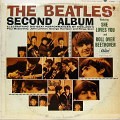
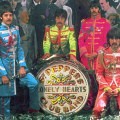
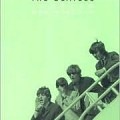

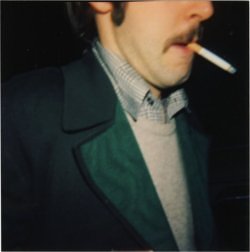
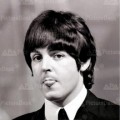
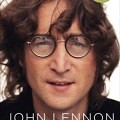


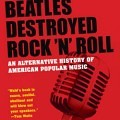
Mike, thanks once again for the warm words about Magic Circles, but I can only say that if I looked at things as you do, I’d never have written the book. (I’ll let other minds estimate the magnitude of the loss.)
I appreciate your serious engagement with my views, for that’s exactly the substance whose lack I was bemoaning. And for what it’s worth, I too have been not just a critic but also a “performer,” in the sense of placing highly personal, hard-fought, long-nurtured work in the public forum, there to be mistreated, misapprehended, misquoted, and generally mishandled by “critics”—i.e., dullards and axe-grinders. Look up reviews of my books on Google or Amazon: I’ve been seeing the act and art of criticism from “both sides now” for a long time.
But lest anyone think I advocate the downfall of civilization via the coddling of intellectual mediocrities, I’ll make it clear that that’s not what I’m saying. (It doesn’t take a critic to miss the point.) I would have thought it was clear to anyone who’s read me in the past that I’m incapable of taking that position, and moreover, that I was advocating nothing more extreme than a form of the Golden Rule: Do unto others. (In fact I excised those very words from my comment, fearing they’d be too obvious a pointer.) That is, after all, pretty much the editorial attitude at Hey Dullblog: We solicit comments and guest postings on the premise and promise that, if the comments are civil and if the guest posts attain a certain level of quality based on a variety of factors, they will be taken seriously regardless of their specific assertions. (Regardless, that is, of how closely the blog editors do or don’t agree with them).
Mike, I don’t think you think the Golden Rule is a civilization-destroyer, so I conclude instead that what divides us is yet another of our fundamental and irresolvable differences, this one bearing on the nature of artistic criticism—what it is, what it’s for, whether any judgments are beyond its bounds, and whether any artist is or should be “immune” from it. That’s a much larger discussion, and it doesn’t belong here.
I do stand corrected on two points: 1) Refuting my breezy claim that “no one else in history has chosen [Beatles for Sale] as” the Beatles’ best album, Tom Kipp tells me that critic John Mendelssohn did in fact pick it as his top Fab LP in Critic’s Choice: The Top 100 Rock ‘n’ Roll Albums of All Time, ed. Paul Gambaccini (1987). 2) I can believe that “eunuch” remark came from any performer who’s been poorly reviewed, even George Burns or Mike Nichols (maybe Oh God! You Devil had just appeared, or What Planet Are You From?—truly, gang bangs for the ages!). But as provenance is notoriously difficult to establish in these things, I’ll go on believing it came from Frank Zappa or Lou Reed.
Devin, I’m all for the Golden Rule whenever and wherever it may be applied, but I ‘spect where you and I differ is in who we consider to be (to use your term) “intellectual mediocrities.” Would you consider Nik Cohn to be an IM? In that review he was, and not because of the conclusions he arrived at (though history has proved him to be all wet), but how. His reading of the work was hugely idiosyncratic and queerly rigid, applying standards only his own, and yet claiming the authority of the arbiter. That move–“I’m right because I say I’m right and I’m in the NYT and you’re not”—is not only IM 101, it’s also the opposite of the Golden Rule. It’s my definition of Bad Criticism, and it was rampant in ’69 and is even more rampant today. Because Bad Criticism is easy to create, just as Bad Art is. Trust me, I’ve made both. 🙂
I think that much of the academy—and much of the culture-production business—is not only where IMs live and breed, I think the structure of such places actually encourages non-IMs to become IMs. It is difficult not to be an IM. It takes work, and taste, and luck, too. Having somebody loudly and publicly judge your work doesn’t help; it distracts from one’s own experience, and attacks one’s essential store of courage when it’s at its most vulnerable. I do NOT think that the (my term) academification of popular culture has reliably produced better popular culture, and if one believes this, the proliferation of pop culture criticism that has taken place since the 60s can’t be seen as a good thing. How would Lubitsch do it? Not by going to film school!
This proliferation has come largely as a result of academic disciplines that have raised up the critic to the level of the author, which is really my beef here. In 1969, there weren’t many people saying that Nik Cohn’s reading of Abbey Road is equivalent to J/P/G/R’s intent for it; today, this idea dominates every Literature Department at every university. And why not? It makes the arbitrary judge—an infinitely easier, emotionally protected, and less risky job—equal to the person who dug the work out of him/herself. I resent that, as does every performer I’ve ever met. I’d say it’s unfair; certainly uncivil. Certainly NOT the Golden Rule.
When you add that malign intellectual trend—plain and simple a result of the explosion of the academy after 1945—to the unrelenting pressures of commerce, and a technological blip in our history that suddenly gives the dopiest among us not only equal voice but MORE voice, I think what I advocate in the post—commonsense reader-side filters for opinion—is not only fair, but sensible and necessary.
And not to gang-bang this into the ground, but I think you’re misreading that quip: it’s not JUST snippiness from a snubbed performer, that’s not what makes it true enough to be aphoristic. It highlights the fact that what’s going on here is between two parties, creator and members of the audience, and the critic is, in 99% of cases, utterly ornamental. Critics resent this, but it’s reality. Good culture—and especially good pop culture—usually connects without any intermediation from critics. And stunts like picking Beatles For Sale as the Fabs’ best album are, often, related to this basic superfluity. (The thing that makes Magic Circles so remarkable is that it’s NOT superfluous, and I see what you mean about someone with my attitude not being able to produce it.) But my bone to pick with Tom’s presentation wasn’t his choice of BFS, which I like a lot, it was that his part didn’t match the sincerity and precision of yours. Whose would’ve? George Starostin, maybe? All I know is, Tom’s approach felt jaded to me—which is not to say he’s an IM, only that I wished he could’ve ginned up more interest in the topic you two were addressing. Is “Meet the Beatles” the Fabs’ best LP? Did the group peak in 1964? If you really believe that, convince me. But own the opinion, take the risk, and prepare to be judged, as ye judge.
Mike: I’ve seen I don’t know many comments appended to Internet reviews (hell, even in Letters to the Editor, if you dig back in newspaper and magazine archives) saying exactly what you said: 99% of the time, criticism is utterly ornamental—that is, irrelevant. Curiously, the comment is always written by people who seem to have read the criticism in question; anyone who truly thought it irrelevant would have skipped the review. Clearly the critical mediation is important to these people as well—even if for them it’s a motor for contempt rather than a vehicle of curiosity.
Your feelings about the academy are valid, but I fear they’re a red herring. I see no evidence that ivory-tower theories about the ascent of the critic and the death of the author have any traction in the real world, or inform the way most people feel about critics. The members of mass culture who hate critics now are the same people who have always hated the critics, since long before the academy garnered whatever power it or we believe it has. (I will say that I have a personal dislike for the critic-as-superstar shtick that not so long ago obtained in our celebrity culture and may now be dormant—the shtick that may have begun with Kael-and-Sarris but really took hold in the mainstream with Siskel & Ebert, and the know-nothings who followed in their wake.)
I understand the meaning of the “gang bang” quip. But that’s why I asked Hologram Sam what position he felt that put the audience in. Are listeners-viewers just being banged, or are they feeling and thinking anything about it? Are they laying there covered in cum and drool; or, being homo sapiens, are they also absorbing the experience intellectually? If they are, that’s a critical process, and it’s the kind formalized in written criticism. When you see a movie with a spouse or friend, do you talk about it afterwards? If so, would you say that’s irrelevant to the experience, or at least somewhat important? That’s a critical process. On this blog, we are all engaged in a communal, ongoing, and evolving project of criticism. For most of us, the meaningful experience of art, and to a great degree of life, is incomplete without some version of that discussion; and for many of us within that group, the discussion, ideally, takes every conceivable form—not just spoken and heard but taught and learned, written and read.
I don’t consider Nik Cohn an IM, though I would say he’s about the toughest writer to defend to other people with vastly different ways of thinking and feeling. I.e., it’s impossible not to have a highly personal relationship to his work, as with the work of many artists whom one holds particularly dear. As much as any writer, Cohn has shaped my thinking through many years and many books, a long relationship of grappling with the freedoms and limits unique to his work (which involves not just criticism but many novels and works of long- and short-form journalism). He started publishing when he was 19, and grew up in his writing; I grew up partly through the process of discovering his writing, book by book. That Abbey Road review was a real piece of shit; most of his work for the Times in that two-year period was shit, as most journalistic criticism was and continues to be shit. Yet I know Cohn’s other work, and value much of it highly, and so rear up in his defense almost as if he were a friend—somewhat as you, Mike, defended Ben Greenman, on the basis of knowledge beyond the immediate instance. And besides, “That [X] review was a real piece of shit” is a far different statement than “99% of criticism is utterly ornamental.” One is a specific case; the other is a statement of conviction.
Critics are not other than authors, they are authors. Anyone who writes a book or piece, certainly to a point of completion and publication, is an author. Whether you execute that function well or badly is a question of evaluation, not definition. Bad critics are parasites. Good ones enlarge and expand the experience of art by adding context, illumination, history, like David Thomson or Greil Marcus; or they fire your own love of a medium or artist by the vitality and vigor of their description, the momentum of their engagement, like Pauline Kael or Nik Cohn; or they attempt to integrate and engage art as part of a larger life-picture, usually involving concepts of politics and culture, like Parker Tyler or Robin Wood. Those are some of the trails I followed as a critic, whence I’ve tried to break off and blaze my own small side-path. (Yet, in a distasteful paradox, the very critics who work hardest to create work that is not parasitic but original are also the most intensely loathed—often by those who find criticism “irrelevant”—precisely because they will not stay within the lines of received opinion.)
Because I consider criticism a creative, not a parasitic act (if done well), I don’t place the same onus on critics as do most people. That is, I don’t expect the critic’s “argument” to “convince” me. I’m entering that writer’s head space for that period of time. While there, I want to be entertained, educated, enlightened, but mostly I want my curiosity about another point of view fulfilled, so that I can take, leave, or steal what I like. I don’t consider the critic a failure if he doesn’t convert me to his way of thinking. I’m not asking to be converted; I’m asking to be entertained, educated, etc. My opinions can stand up for themselves, and usually do.
To me, the duration of Hey Dullblog demonstrates, not the Beatles’ immunity to criticism, but their amazing availability to a plethora of personal approaches. They long ago passed the point of being destructible, by either criticism or historical revisionism; but “indestructible” is not the same as “untouchable.” They remain touchable—fantastically so. And if someone wants to claim that Beatles for Sale is their best album, or that they peaked in 1964, those are only ways of touching the Beatles in new places. Let me watch, let me read, as you touch them in this new place. After which, I will walk away, either moved or unmoved, either going “Hmm” or muttering “Whatever.” But because I value the act of writing criticism as an ideal—and it may achieve some form of the ideal at any time, in any instance, even though, like most things in life, it almost certainly won’t—I will never walk away feeling the experience was irrelevant.
But that’s just me. Some people like chocolate ice cream. I find it utterly ornamental, and completely irrelevant.
@Devin, quickly–
anyone who truly thought it irrelevant would have skipped the review.
Point taken, but it’s an evasion of what I was getting at, which was that there’s a proportional difference between an original object and criticism of that original object. (And please let’s not get into the morass of “what’s original, anyway?” This is the province of scoundrels, and IMHO a main reason why most contemporary culture is horrible–if a person can’t discern the difference between “Paperback Writer” and a Monkees mash-up, something in them has been damaged.) Many, many more people have been touched, moved, changed by Beatles music than by criticism of same—there’s a proportional difference in the transaction.
Your feelings about the academy are valid, but they’re a red herring. Those views may hold in critical coteries or ivory towers, but they simply don’t inform the way most people feel about critics. The people who hate critics now are the same people who have always hated them, many, many generations before the academy garnered whatever power it or we believe it has.
It’s not at all a red herring; it’s located in my personal experience, and directly informed why I didn’t–for example–go do what Ben Greenman does for a living, since you brought him up. Being a critic works for him, and he does it sincerely and well—but I think his original work is orders of magnitude more interesting. Criticism is, to be blunt, something most writers do to pay the bills, and the worst of them are intellectual mediocrities lacking the courage to produce original work. The lousiest short story in the world is a singular object of originality, there to be judged, relying on nothing but itself, while only the greatest critics transcend the objects of their attention enough to reach the point of creating something new.
That’s a critical process, and it’s the kind formalized in written criticism. When you see a movie with a spouse or friend, do you ever talk about afterwards?
Of course, but it’s the formality that’s at issue here. Formality—writing it down, “publishing” it, putting it out for public consumption as a shard of thought, getting paid (when that happens)—this makes all the difference in how one can and should judge the criticism. Defining it as all the same isn’t accurate.
as you defended Ben Greenman on the basis of knowledge beyond the immediate instance.
First of all, Ben is an actual friend, who may well have seen that post—via Google Alert or something—so I felt some sense of obligation to pipe up. And I defended Ben as a person, not as a critic, and not the opinion in his review, which I felt was ill-considered.
And besides, “That [X] review was a piece of shit” is a far different statement than “99% of criticism is utterly ornamental/irrelevant.” One is a specific case; the other is a statement of conviction.
Sure, but it’s a reflection of my own lived experience–99% of all criticism I have read has been ornamental and irrelevant, especially in comparison to the original works. (BTW, I’d say the same thing about 99% of the parody I’ve read. Parody, as a form of criticism, is an inherently secondary form. Only the very best of it is not ornamental and irrelevant. I may be hard, but I’m fair.)
Critics are not other than authors, they are authors. Anyone who writes a book or piece, certainly to a point of completion and publication, is an author.
This is too simple, Devin. If you want to say that YOU personally are an author, I’d agree unhesitatingly with that; but that’s based on the care and thought and skill that you personally bring. Most critics, like most parodists, do not bring the requisite care/thought/skill to the work to be considered equivalent to people producing original work. We can argue about this, but every reader feels it. I’d argue that’s why I get huge pushback every time I do a parody. Readers feel the unfairness—the assumption of unearned authority; if you’re lucky, they give you a chance and you earn that authority. But most don’t give critics or parodists that chance, and I’d argue it’s because most parody (and most criticism) doesn’t deserve that chance.
David Thomson
Oh Jesus Christ. You mean the guy whose book was laughably wrong on every artistic judgment I happened to read in The New Biographical Dictionary of Film? The guy who fucking owes me that hour (aggregate) back?
Here’s a dip-in:
“Fascinated by ugliness and grotesques, [Fellini] expresses himself on film without grace”? The first part is true—and obvious—but the second is simply incorrect. What movie is Thomson watching during “La Strada”? Or “I Vitelloni”? Or the fountain scene in “La Dolce Vita”? I could go on, but I won’t. That statement is a cheap shot–it’s an arbitrary artistic judgment by a guy who’s showing you that under all the verbiage he’s just a guy. Were DT a pal of mine discussing something we’d just seen at the Aero, I wouldn’t turn a hair. But this misleading, fairly preposterous assertion is puffed up by a ton of unearned authority.
I’m asking to be entertained, educated, etc. My opinions can stand up for themselves, and usually do.
And so, what is one to do when the vast majority of criticism does NOT entertain or educate? Is that, as you seem to imply, a flaw in the reader, a lack of flexibility or fair play? Or is it, as I’d argue, a flaw with the critic? I’m sorry good criticism is difficult—but that’s not the audience’s fault. People’s attention is precious, and secondary forms like criticism or parody must be that much better to justify the reader’s time.
I’d say that the vast majority of criticism is just sneaky autobiography; if there’s genuine entertainment and/or education in it, fair enough—but criticism that simply explores the head of the critic, while purporting to illuminate a cultural work, is built on a fundamental dishonesty. That, and not some irrational hatred of critics stretching back to Christ turning over the tables, is at the heart of this.
Critics, like parodists, borrow the authority of an original. This is a significant taking, and it has to be balanced by a equally significant giving. Most critics don’t do this, or enough of it. That’s not on readers, that’s on us.
I’ve enjoyed this, Devin, thank you.
Mike and Devin, as someone who’s also written reviews (of books) for publication, I very much enjoyed reading your exchange. Here are some of my thoughts on criticism, many of which chime with points one (or both) of you made:
Some critics attempt to explain a work, while others attempt to explain it away. That’s true for reviews written for popular media–especially now, when a polarizing hook is one way to get “click-through”–and for academic criticism. Mike, I think the academic move of elevating criticism to the height of the original work is the purest instance of the explain-it-away mode. That kind of criticism feels drained of any genuine engagement with the work under review, except its use as an occasion for displaying the critic’s own intellectual power.
Devin, I found what you said about your readerly relationship with Nik Cohn illuminating. Just as we can’t help but have a strong emotional stake in art that we love, so we can’t help having the same kind of emotional bond with someone who’s helped us understand and engage with that art more fully. And since we’re all human and limited, sometimes even the critic we love will write something foolish, mean-spirited, or boring. But just as we continue real life relationships with people who commit such gaffes, we continue them with critics (and artists) who do. Especially since we all need mercy for our OWN gaffes.
Which brings us right back to the golden rule as it applies to criticism. Like Mike, I have my own short list of guidelines for good criticism:
1. Make every effort to meet the work on its own terms. (In other words, don’t base your criticism on the work’s not being something it isn’t trying to be. Come with a mind open enough to be willing to see how well what the artist is trying to do works. And if you can’t do that–if you know beforehand that you dislike an entire genre or a particular artist strongly enough that you can’t escape that gravitational pull–then review something else.)
2. Be specific enough about what you think works or doesn’t work that readers have a fair chance of forming a preliminary idea of the work themselves. (This is tricky, and can only really apply to longer pieces. But there is no substitute for including and explicating quotations, specifically analyzing the structure of a work, or making the hard effort to describe its stylistic or musical qualities. In particular, damning a work with lazy generalizations is contemptible.)
3. Show respect for the effort behind the work under review. (This is a kind of summation and extension of the other two principles — a restatement of the Golden Rule. This doesn’t mean kowtowing to everyone who records or publishes something, or pretending that gradations of quality don’t exist: basically it means not getting “high on your own supply,” as Mike says. If the work shows evidence of a real attempt to connect with an audience and give it something worthwhile, acknowledge that — and have some humility about your own function as an intermediary.]
I think it’s worth thinking hard about criticism because the best really can open up a work, and an artist. To take some literary examples, the criticism of Barbara Hardy and Karen Chase permanently enlarged my view of what George Eliot, Thackeray, Dickens, and the Brontes were up to. After reading Leon Edel on Henry James, I have a new appreciation of much of his work (even if I may never make myself finish “The Wings of the Dove.”)
To bring that back into the Beatles circle, I’d cite Devin’s “Magic Circles” (you’re just going to have to live with another plug, sorry), Tim Riley, Ian MacDonald, George Starostin, and John Blaney as writers whose criticism has helped me understand and appreciate the band’s achievement more fully. As a single instance of a review that expanded my understanding of a work, I’ll give Jayson Greene’s review of “Ram” in Pitchfork (which I’ve praised here before). That’s a review that deals with historical context and musical specifics in an exemplary way. For example, I hadn’t realized that the background singing on “Smile Away” goes back and forth between “Don’t know how to do that” to “Learning how to do that.” Greene’s careful listening altered what I can hear in that song.
Finally, I agree with Devin that the Beatles’ music endures not because it’s immune to criticism but because it is so rich and engaging that it creates a wide field for discussion. People who want to rant that the Beatles aren’t as good as fill-in-the-blank can do so endlessly. They’re the Shakespeare of popular music: critics can have at them endlessly, but the essential power of the work to connect with an audience remains, untouched by so-and-so’s Marxist dismissal or so-and-so’s psychoanalytic reading.
I see that “eunuchs at a gang-bang” comment as useful if I take it to mean that bad critics try to talk about the banging only from the sidelines, without participating in it themselves, while good critics write about the banging after experiencing it.
P.S. Mike, to your point about the digital age fostering an “everyone’s opinion is equally valid” mindset, this post from the group blog College Misery (written by professors) bears you out, sadly:
http://collegemisery.blogspot.com/2013/11/confused-connie-just-wants-to-believe.html#more
Great comment, Nancy. Some thinks, FWIW:
1. Make every effort to meet the work on its own terms.
YES. Much of my frustration with critics is how seldom they do this. Nearly every review I’ve ever received—when my work has been deemed worthy of critique, which is a whole other, though related, story—it’s been judged against the critic’s own idea of what he/she would’ve done, had he/she written the work. There is no attempt to analyze the work structurally, find repeating tropes/themes, or dig out what I might be “trying to say.” There’s an assumption that I don’t have anything to say–even though it’s clear that my audiences are receiving something. My work, which exists, is been held up to a nonexistent ideal and, predictably, found wanting. “See, if I were writing a parody of Harry Potter, I would’ve…”
George Eliot, Thackeray, Dickens, and the Brontes were up to
…which begs the question: can we adequately critique contemporary work? I think often the best we can do is expose the contemporary history and pressures on the work, in part for what it tells us, but also as a trove for future critics to explore. For example, the post-1970 explosion of parody in the US, which has fundamentally changed our society in so many ways as well as revealing so much about it, can and should be addressed critically. What does it mean when our version of Walter Cronkite is Jon Stewart? What relationship does that have with Empire, and our conception of ourselves? Pop culture critics are obsessed with telling us whether something is “good” or not, as if that were anything more than how much it fits with their own taste—but who gives a shit about that? They are woefully inept at explaining what it means, how it was made, why it was selected over other things. But these things are what contemporary critics could determine, and future critics totally unable to divine.
immune to criticism
Ever decided to dislike a Beatles song that you used to like, because a critic told you it sucked? Me neither, and that’s what I mean by “immune.” The piece of work either connects with you, or it doesn’t, which makes criticism of it ornamental. Might be a pretty, well-made, ornament; the ornament might be a mirror that allows you to see the song (or yourself) in a new way. But this is why the “gang-bang” metaphor has juice: liking a song, like sex, and like laughing, is not primarily an intellectual exercise. There’s something biological (or energetic, which is more SoCal but more accurate) that takes place…THEN the mind engages and makes sense of it. This is different than, say, a novel. Reading a novel is first an intellectual exercise and then, if it’s good, the mind recedes as you engage with the work.
It’s this biological/energetic nature of certain arts that make them harder to critique under the terms of 1). Doing that, for a critic of music or comedy, has to be deeply personal—and not only is that something most critics are uncomfortable with, it would restrict them from reviewing anything they didn’t connect with. So there’s a psychological risk, and a career problem, implicit in 1). Devin’s utterly courageous when it comes to the psychological risk; most critics aren’t. Most critics don’t wanna own the fact that, especially with contemporary culture of certain types, it really isn’t about the work, it’s about them.
Good point about how much historical distance helps, Mike. However, here are two reviews of recent books that I thought were great, and very helpful:
Margaret Atwood on Stephen King’s “Doctor Sleep”: http://www.nytimes.com/2013/09/22/books/review/stephen-kings-shining-sequel-doctor-sleep.html?_r=0
and King on Donna Tartt’s “The Goldfinch”: http://www.nytimes.com/2013/10/13/books/review/donna-tartts-goldfinch.html
So it IS possible. A pleasant thing to contemplate, when things are looking dark.
And speaking of criticism and historical distance, a Salon columnist wonders why we are making such a fuss over the 50-year anniversary of “I Want To Hold Your Hand” and not other songs like “Wooly Bully” for example. Extra points to the author for referring to the Beatles as the first “boy band.”
http://www.salon.com/2013/11/27/the_years_most_overrated_anniversary_quit_celebrating_i_want_to_hold_your_hand/
Critics are writers–some are great, some are terrible. And arguing that BFS is the best Beatles album is no more intrinsically stupid than making the same claim for Abbey Road or the The White Album. If I were making such an argument, I would point to BFS’s pivotal role in the band’s trajectory, as they moved away from straight-up rock-and-roll and absorbed Dylan’s influence (and added more folk and country touches to the mix). There’s more acoustic guitar, some of the most sublime harmony singing in the whole catalogue, increased sophistication in arranging and production (the distant low-register piano on “No Reply,” timpani on “What You’re Doing”). And two of their best covers ever, “Rock and Roll Music” and “Kansas City,” in which they arguably cut the originals. It’s right up there with Beatles VI!
@James—
Critics are writers–some are great, some are terrible.
Nobody’s arguing that critics aren’t writers. What I am saying—as somebody who has written as a critic, and written original works, and (this is the important bit) written massive amounts in a form which is fundamentally critical but also deeply original, using an original text to express both critique of the original AND my own thoughts—is that there’s a difference between work based on an original and original text. They are written differently, and judged differently by the audience.
As a writer, my wishes are with you and @Devin; I believe parody is particularly well-tuned to our age, an excellent way to talk not just about an original text, but everything around it. Every parody I’ve ever written, from age 18 on, has been an investigation of this idea—an attempt to build on the innovations of The National Lampoon (absolute graphic fidelity, parody as worldview) and take them farther, using parody as a platform for authentic self-expression as well as critique. The form blows a hole in the reader’s reality, and through that you can push new ideas on any topic. Right? I wish.
What I have found over 25 years of working with audiences, all sizes and demos, is that they will not go very far in this direction. They do not like—they will not accept—a parodist claiming that kind of authority. That kind of “come with me to this new place” is only given to authors of primary works (or derivative works whose original is not known by the audience).
So, sadly, I’ve come to believe that the “secondary-ness” of a piece of criticism is a non-negotiable limitation of horizon, not on the critic’s side, but on the reader’s. This restriction may be beneficial or not—it may give a writer confidence, or a running start, or enthusiasm—but it’s not really arguable and very, very seldom overcome. Criticism, be it the review-type or the parody-type or anything in between—is a restriction of palette, an acceptance of another writer’s groundrules, a borrowing of authority or affection. This is completely apart from whether it’s good or bad work, but it’s felt by both the critic and the audience, and results in secondary works being judged quite differently. This may be fair, or not, but it exists and to say it doesn’t—”critics are writers”—feels lovely and democratic and pro-writer, but it ignores how secondary works really exist in the world. And to acknowledge this reality isn’t demeaning to authors of secondary works.
“And arguing that BFS is the best Beatles album is no more intrinsically stupid than making the same claim for Abbey Road or the The White Album.”
I wouldn’t use the word stupid, and if a person likes BFS that much and has worked out why, I’d like to hear it. I can take that which enriches my own enjoyment, and leave the rest. But such outrageous claims, in our age of vast oversaturation both of primary works and comment upon those works, are usually an attempt to grab the reader’s attention. They are insincere. They are stunts. There’s a whole website devoted to attention-grabbing inversions of the conventional wisdom followed by intellectual scrapings: it’s called “Slate.” Sometimes it’s fun to read, but mostly it’s full of shit.
The Beatles are a mass taste; that’s what they aimed to be, that’s how they were seen then and now, how they were packaged, it is their idiom. For work in that idiom “popular opinion” has an extra weight, and the popular opinion as to the group’s best LP is pretty consistent—Pepper or Revolver, with White vast but uneven, and Abbey Road as magisterial but lacking in the cultural impact of Pepper or the leap-forward of Revolver. To go off the rez and pick BFS over these LPs is either a personal preference (as is mine for MMT) or a stunt. Which is OK. I like BFS, and I find your points interesting. But you and I both know it’s a stretch to call BFS their best.
Michael, putting aside your ideas about parody-as-criticism–and I think you’re right, most readers will go only so far down that road–I just don’t agree that the very best criticism is condemned to a kind of secondhand or satellite existence. Powerful works of criticism are primary works. The authority or affection (nice phrase) is not borrowed, it’s self-generated, whether we’re talking about Hazlitt’s The Spirit of the Age or Randall Jarrell’s great Fifties books or Elizabeth Hardwick’s Seduction and Betrayal or, for that matter, Magic Circles. Or Cynthia Ozick, Anthony Heilbut, Wilfrid Sheed (I’m thinking of his amazing The House That George Built), Gary Giddins, William Logan. These people didn’t (or don’t) write criticism as a hobby or left-handed pursuit of petty cash. It’s the real thing for them, and for any reasonably intelligent reader. How their work stacks up in the marketplace of reputation is something else, but I think we’re living in an era when the distinction between genres, which has traditionally ushered criticism to the back of the bus, is becoming less important. Which is fine by me. As for BFS and its spot in the Fab Four pantheon, I don’t see why anybody should feel bound by popular opinion or give it any special weight. We’re talking about taste here–or, as you say, personal preference. But Michael, they’re all personal preferences, so why isn’t your love for MMT (which I share) a stunt? All of the records are on the rez as far as I’m concerned. And it’s fun to kick these questions around, wherever we end up.
putting aside your ideas about parody-as-criticism
Why put this aside? If you don’t address this, you’re not addressing my comment. Parody IS inherently critical, that’s why it’s protected speech. When I’m a parodist, I’m a critic–not writing “as a hobby or pursuit of petty cash” –and my critical works have sold over a million copies. They have been, in their way, as influential as any of the books you mention–much to my surprise, but there it is. Agree with me or don’t, but to gloss over that whole portion seems to me like an admission that you’re expressing how you WISH the world would work (criticism is important!) instead of my vast pile of evidence as to how readers really engage with criticism (most actively dislike it, and even the really good stuff has to get over massive skepticism).
I just don’t agree that the very best criticism is condemned to a kind of secondhand or satellite existence.
I specifically wrote “very, very seldom overcome”–not never overcome.
I don’t see why anybody should feel bound by popular opinion or give it any special weight.
When dissecting the most successful and durable popular music of the last 100 years? Look, nobody’s telling you you can’t have (or write) any opinion you want. But if you dismiss popular opinion when addressing The Beatles, readers quite rightly ask, “What are we really talking about? What you personally like? What you and your friends like? Why is that worthy of my attention?”
My love of MMT isn’t a stunt, @James, because I’m not speaking with the authority of a critic. I’m not doing something like Devin’s lovely and thought-provoking dissection of “Happiness Is A Warm Gun” in a book published by Harvard University Press; I’m blathering on a blog. To me, there’s a vast difference, in intent and standard. I’m a fan writing about what I like. I’m not claiming any special knowledge or authority, nor am I trying to build a public persona via this opinion. Critics claim special authority, and that authority comes with a price–a greater burden of proof, if you will. Whether critics think that is fair or not, or wish to acknowledge it, it exists, especially when addressing popular works. This is simply how audiences interact, not as I’d wish it to be.
The reason I glossed over that part of your comment is that I haven’t read all that much parody-as-criticism, including your own (which I will now happily investigate). But I’m confused. If your works of parody have sold over a million copies and are arguably as influential as any of the books I mentioned above, haven’t you proven that the public does in fact like criticism? What sort of validation are you waiting for? David Remnick’s? Susan Sontag’s, transmitting from beyond the grave? The fact that most criticism is ignored by the general public doesn’t make it bad or irrelevant. Hell, most books of any kind are ignored by the general public. But it seems to me that you want it both ways. On one hand, we should heed the vox pop when it comes to evaluating popular art–shouldn’t they know better, as a many-headed aggregate? On the other hand, we’re supposed to scrape and bow before the holy altar of Harvard University Press, because that’s where critical authority resides, as opposed to the small fry mouthing off on a blog (let alone in the comment thread of a blog). I just don’t agree. All you have to work with in the end is your own sensibility, your own ear, heart, nerve endings–choose whichever anatomical metaphor you prefer. I have huge respect for scholarship, but that’s not identical to critical authority, not in the least. If you think the fan is finally divisible from the brilliantly informed scholar, I suggest you check out Anthony Heilbut’s aptly titled “The Fan Who Knew Too Much,” which just came out in paperback. And truly, Michael, I’d like to know why MMT is your favorite.
@James, my career doesn’t prove that the public likes criticism. It proves the public likes jokes.
I doubt you’ll find much intellectual meat in my work–because few people read it in that way. The rest of contemporary comedy—written and performed—trains them not to. And of course I DO want it both ways: I want to communicate complicated, personal ideas to as big an audience as possible. To do this, because of the time and place in which I grew up, I chose comedy. But I only became a comedy writer because The Beatles weren’t hiring.
I was writing—I always write my parodies—on three levels: the first is the type of humor understandable by most of humanity, which mostly has to do with the body. It is very strange indeed to be embodied, and my slight case of cerebral palsy, as well as another chronic illness, keeps this fact front-and-center for me in a way that I suppose it is not for most people. The second level is direct critique of the material at hand. For example, Barry Trotter and the Shameless Parody was about the relentless transformation of successful books into movies, and how that “destroys” the original in the mind of the reader, as well as transforms the literary work into a wan, skimmable subset of the dominant visual form for all future readers. This book-into-movie is considered to be the natural order of things (it’s not; it’s an artifact of corporate media culture), as well as an untrammeled good (it’s much more complicated than that). And then there’s the third level, which is a massive amount of my own obsessions and cultural flotsam and jetsam, where I’m communicating as an individual to another individual. That’s why there are always Beatles references in my parodies; I want my readers to know me and what I think about and how I think.
My parodies were ridiculously influential; when it appeared, the first Barry Trotter spawned a whole new subgenre of comic writing in Europe, causing a multi-year glut of longform parody in the college humor tradition. Bored of the Rings came first, but Barry Trotter was a bit bigger, and it was that book that (apparently) caused publishers basically everywhere BUT the US to discover that 1) this kind of writing was legal; 2) that it could sell; and 3) that it was a viable form of comic writing hitherto unknown outside the US. I was surprised as anybody that the Brits hadn’t been doing longform parody like this, but they hadn’t. I was surprised as anybody that my work would sell translated into 25 different languages. But it was new, and did sell, and just last month I spent a lovely afternoon with an Italian grad student who is writing a thesis on me. Shit, even JKR herself gave me shout-outs in Books 5, 6, and 7.
Flattering? Sure. But what the public has taken away from Barry Trotter–and all the other parodies I’ve written–is the first level. Occasionally–maybe one reader out of a thousand–has written me about level two. And speaking about level three–that is, having my parodies looked at as a series of novels, a writer expressing himself, as they would reflexively be if I’d written them without the borrowed authority of parody–that’s never happened. So this is why I know, beyond any doubt, that popular audiences actually resist criticism–which is my point. It’s not about getting my work validated, by David Remnick or anybody else. David Remnick wouldn’t know me if I mugged him; but if I showed him a parody of Raymond Carver that my writing partner and I did, he’d say, “Oh yeah–we put that in the NYer’s Best of book.”
If a person can have my experience–write a type of criticism so influential that it spawns a new genre in some places; and receive accolades from the holiest of holies–and STILL be utterly unknown by well-read, thoughtful, pop-culture vultures like yourself, then clearly we’re talking about two audiences: the vast popular one, to whom criticism more complex than Siskel and Ebert is utterly disregarded, and the very small cognoscenti who read the writers you mention and bat those ideas back and forth, within the ivied walls of academe or some internet analogue of same.
There’s nothing wrong with that kind of badminton between consenting parties; but a lot of pop culture criticism I read is nothing more than one person’s noodlings on something popular, masquerading as some kind of genuine insight. When my wife worked in the writers’ room of Breaking Bad, she would occasionally read about what was going on, and why; and what “the writers are thinking.” They were always completely wrong. Harmless, but not insightful.
And so here’s the one place that you and I disagree: I really DON’T think that every interpretation of a text is equally valid, or equally interesting, or worth considering. The ability to write a decent sentence, plus the desire to hear one’s own voice talking about Game of Thrones or tentacle porn or The Beatles, doesn’t mean one has something meaningful to say. The democratization of media–and more to the point, the democratization of criticism–really HASN’T increased most peoples’ understanding of popular culture, or given us better popular culture. Should people be allowed to express whatever opinions they want? Sure. But there are only so many hours in the day, and so I think it’s not only sensible that readers should turn to certain arbiters for the winnowing, I think said democratization makes it more and more necessary for readers to do so–especially on topics like The Beatles, which are so omnipresent and accessible that anybody with a passing interest in music will have an opinion. That’s why Devin’s HUP-vetted book carries more weight than all my rantings on HD. It’s not snobbery on my part, it’s a recognition that there are opinions and then there are OPINIONS. Readers’ time is valuable and shouldn’t be wasted with jokey outliers like “Beatles For Sale is the best Beatles LP”–unless that critic really, truly, sincerely believes that.
The vox pop, then and now, is an extremely important data point when analyzing historically distant pop culture. Tastes change; vogues come and go. We are sealed in the prejudices of our time. Individual opinions (like Nik Cohn on Abbey Road) can be idiosyncratic. What physicists thought about Einstein’s Theory of Relativity matters; so too the 1967 sales figures of Sgt. Pepper. To me…but YMMV.
PS–Do a search for “Magical Mystery Tour” on the site, and I think there are a couple of older posts explaining why I like MMT best of all.
That the public likes jokes much more than criticism is something we can agree on (and I don’t blame them). That you had such phenomenal success with your parodies is–well, fantastic. A million congratulations to you. Where we continue to diverge is your suggestion that meaningful criticism (or meaningful anything) is confined to old-school bastions like Harvard University Press. Devin’s book “carries more weight” because of what’s inside it, not because it earned the imprimatur of a name-brand university–how can you really argue otherwise? If the exact same text had appeared in installments on this very blog, would it be less valuable? Vox pop as data point–sure, no argument there. Vox pop as final determinant of what’s good, bad, best? No thank you. We are, as you noted, sealed up in the sarcophagus of our own cultural moment, and individual opinions are always idiosyncratic, but seriously–the most popular books or music or art of any era tend to disappear without a trace. Nobody thinks Paul Whiteman is still the King of Jazz, and nobody is reading Edward Bellamy’s “Looking Backward,” which outsold every American book of the 19th century aside from “Uncle Tom’s Cabin.” That’s actually why I cherish what you classify as “outlier” arguments. There is nothing so deadening to fresh perception of a work of art as the assumption that it’s a classic, important, untouchable. Anyway, I’ll look up your thoughts on MMT, which I was just listening to this morning.
@James, I’m enjoying this, thank you.
I’m not saying that “meaningful anything” is confined to old-school bastions like Harvard University Press; I went to Yale and know such places very deeply, and think they’re mostly full of shit. What I’m saying is that the profusion of content being produced today is making arbiters functionally more important, not less. And while we can absolutely agree that Devin’s work would be just as enlightening if it were posts on his blog, I believe the way readers would interact with that would be vastly different than how they did when it was a hardcover book from HUP. The context of criticism does matter; and while it can hide bullshit, it can also make it easier to put forward new and startling and valid criticism, as in the case of Devin’s book.
Vox pop as final determinant of what’s good, bad, best?
But what does “best” even mean in a world where every criticism is valid, imprimatur/authority is immaterial, and popularity signifies nothing? What you, as an individual, like best? I can see how that can succeed as self-expression and sometimes even good writing, but the critic-as-guru thing is a much more reliable indicator of bullshit than HUP.
My critique of Beatles work is usually located in an historical reading, or my instinct regards what was going on in the group. Both of these draw explicitly on my obsessive study of things about the 60s and 70s, and my own personal experiences in psychology, the commerce of creativity, group creative endeavor, and Eastern religion. I wouldn’t feel comfortable offering opinions simply from my own tastes; I wouldn’t think that justified the reader’s attention.
Briefly and to save you the search: over the past decade, I found myself listening to MMT much more than the usual suspects–much more than White (very depressing) or Abbey Road (too slick) or Rubber Soul (something a bit mannered about it). Pepper and Revolver I listen to regularly, in that order, but if I’m just cueing something up, it’s usually MMT. This is a weird choice, and so I started to think of why.
I think I like MMT best because I think it’s a core sample of the group at its pivot-point, from late ’66 to late ’67. They are fully in possession of the recording studio, and the technology available to them is finally adequate. All four are still fully committed to the group ethic, especially John and Paul.
(A small side-note: I don’t believe John’s post-Yoko story about being in misery in late ’66 and ’67; I believe the other sources that say his use of LSD was making him less hostile and more social. Certainly the quality of his work is uniformly high at this time, and much of his reputation is based on the songs he wrote then: “SFF,” “A Day in the Life,” “All You Need is Love,” and “I Am The Walrus.” Take those songs away, and how we see John Lennon today would be vastly different–they are his greatest forays into childhood investigation, depressive isolation, Utopian vision, and pure imagery–the major creative themes that would repeat for the rest of his life.)
To resume: The team that gave them such success from 1962-1967–specifically Epstein and Martin–is still fully present and functioning well, Epstein as a screener/enabler, and Martin as a translator of their musical ideas onto tape. Paul has emerged as John’s equal in every way, so that the material has reached the richness and contrast it would have for the rest of the group’s life. There’s a “warmth” to the sound, perhaps due to the tube-based mixing board that was ripped out before White. The songs on MMT are uniformly interesting, and several of them–“Penny Lane” “SFF” “I Am the Walrus” and “All You Need is Love”–are unquestionably highpoints in the catalog. Most importantly, MMT’s the last album where John’s a Beatle, rather than “John Lennon.” He was still doing “all the little things” to make the group great, and still believed in The Beatles as an endeavor. (The last gasp of this is the “Lady Madonna/Hey Bulldog” sessions, but then it’s really over. And I love LM/HB in the same way I love MMT.)
Finally, MMT’s the final expression of psychedelia from The Beatles, which was a cultural and social movement decades in the making—a response to totalitarianism, the Cold War, and the horrors of WWII; rooted in CND and the Beats and nonviolence (along with a lot of other things), which was looking for, and eventually offered Western society a real alternative to capitalism, nationalism, and organized Christianity. The “movements” that followed after were either reactions to frustration (“revolution” in ’68 and ’69) or simple fashion (roots rock, glam, punk, etc). Psychedelia also came from frustration, but it had deep roots and offered real alternatives; and it also had a fashion/style element, but it was a unique moment in the history of the West, a path not taken then, and still not taken today. It was based on a genuinely different cast of mind, which had existed before the penetration of psychedelics into mainstream culture, but those chemicals (pot, peyote, mushrooms, LSD, others) intensified this cast of mind and gave it an awesome urgency and focus.
Most of the enduring legacy of the Sixties comes from psychedelia. And so The Beatles singing “All You Need Is Love”–as close to a mission statement as the band ever got–on worldwide satellite hookup, is the moment where The Beatles’ flag flew highest. The LP collecting that, and all the great work around it–though it’s synthetic, rather than the product of a single set of sessions–has to be my favorite. MMT has a lot of good vibes; but it’s also a record of The Beatles at what I believe to be their most important time–from the beginning of the Pepper sessions to the period after Brian Epstein’s death. (“I Am the Walrus” was the first track recorded after Brian’s death.)